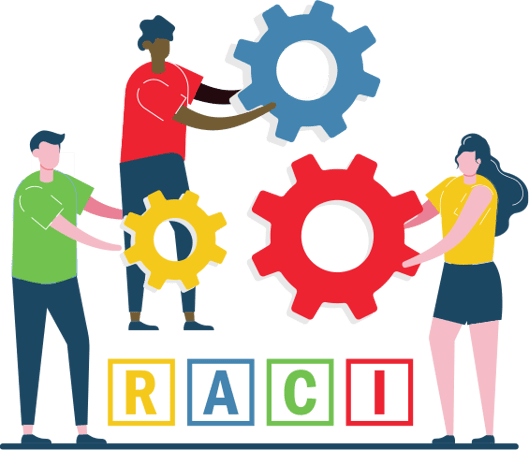 In “Death by Meeting,” Patrick Lencioni writes that he often hears managers and executives lament, “If I didn’t have to go to meetings, I’d like my job a lot more.” He points out how sad this is and asks, how would we feel about a surgeon who said, “If I didn’t have to operate on patients, I’d like my job a lot more.” Because as Lencioni points out, for those of us who lead and manage organizations, meetings are pretty much what we do! He also points out that good meetings lead to good decisions and bad meetings almost always lead to bad decisions, or no decisions at all. And good meetings connect us to the passion we feel about our work at its best – the reason we get out of bed in the morning and come to work in the first place.
In “Death by Meeting,” Patrick Lencioni writes that he often hears managers and executives lament, “If I didn’t have to go to meetings, I’d like my job a lot more.” He points out how sad this is and asks, how would we feel about a surgeon who said, “If I didn’t have to operate on patients, I’d like my job a lot more.” Because as Lencioni points out, for those of us who lead and manage organizations, meetings are pretty much what we do! He also points out that good meetings lead to good decisions and bad meetings almost always lead to bad decisions, or no decisions at all. And good meetings connect us to the passion we feel about our work at its best – the reason we get out of bed in the morning and come to work in the first place.
So how can we improve the quality of our meetings?
You will not be surprised to hear that I think a large part of the answer has to do with ROLE and with understanding why this group has assembled. We’ll use the RACI codes to think about what the meeting is focused on. (See "Defining the RACI Codes" for a brush up on these.)
The “flabby” meetings that people cancel with ease or drift away from are almost always informational meetings. The role of the group is to exchange or take in information. This outpouring of information can be leavened with Q&A when these meetings are small enough, but if they are larger than 12-15 people or if they are virtual, too often they are just a stream of information flowing over us. What is the symptom of an informational meeting that is not going well? People are on their blackberries.
There is more “action” in a consultative meeting. You are bringing an idea to the group and asking for their advice or their reaction to it. If this is genuine, you’ll notice that the group takes it seriously – they can get a lot more engaged and offer contrasting points of view. They can argue for their perspective (disagreement is generally a good sign that people are being honest and are engaged) but in a consultative meeting there is no need for them to reach agreement. You can hear their multiple opinions, say thank you very much and weigh your options. Maybe someone’s ox is going to be gored – you will have to decide whose. This kind of meeting is the bread and butter of stakeholder management.
What if the group has to formulate a recommendation? Now we are ratcheting up the empowerment level of this meeting; the group has the R for something. The Board has asked the CEO to come back with a clearly articulated strategy on expansion into a new market. The CEO has assembled a team of executives to dive into the issue and come back with a recommendation. This group will need to come to consensus or at least offer a majority opinion after taking a vote. This kind of meeting is one where your ideas really count and the potential for disagreement or debate is much higher. People don’t miss these meetings—they go to them to make sure their interests are protected and their voices are heard.
If the group itself is making the decision—determining the strategy for example—as a senior team would do, then it has the Authority (A) role. These are the most vital meetings of all because the group can tell that its work is consequential. Differences are important and must be resolved. The stakes are high.
Here are some suggestions for using these ideas to improve your meetings:
1) Ask yourself whenever you are invited to join a group or a meeting—What is the role of the group? What are we mostly going to be doing?
2) When you assemble people for a meeting, ask yourself about the role of the group—is it an I, a C, an R or an A? Whenever possible, try to “move up” that empowerment scale.
3) If the purpose of the meeting is mostly or purely Informational, ask yourself if there is some other way the information can be conveyed. Send a singing telegram along with a memo if you have to—and spare everyone the pain of attending a lackluster meeting.
About RACI Solutions
RACI Solutions has been helping organizations across the globe utilize the power of RACI to transform the dynamic of cross-functional teams since 2007. Whether you are new to RACI or have used it for years, we can help.
Today’s business environment is complex – you may be contending with matrix structures, rapid growth, mergers, multiple locations, virtual employees, and/or digital transformation.
As a result, project teams can get stuck. Let us help you! If you need to learn RACI, we offer train-the-trainer materials and custom workshops. We can help you create RACI super-users. If you already use RACI or another decision matrix, we offer programs that help you become skilled at working across functions – an effective horizontal leader. We help project teams tune up their performance. We help organizations streamline their decision-making.
Our team is comprised of expert consultants, trainers, and facilitators, who can help your teams and their leaders achieve a seamless level of collaboration.





